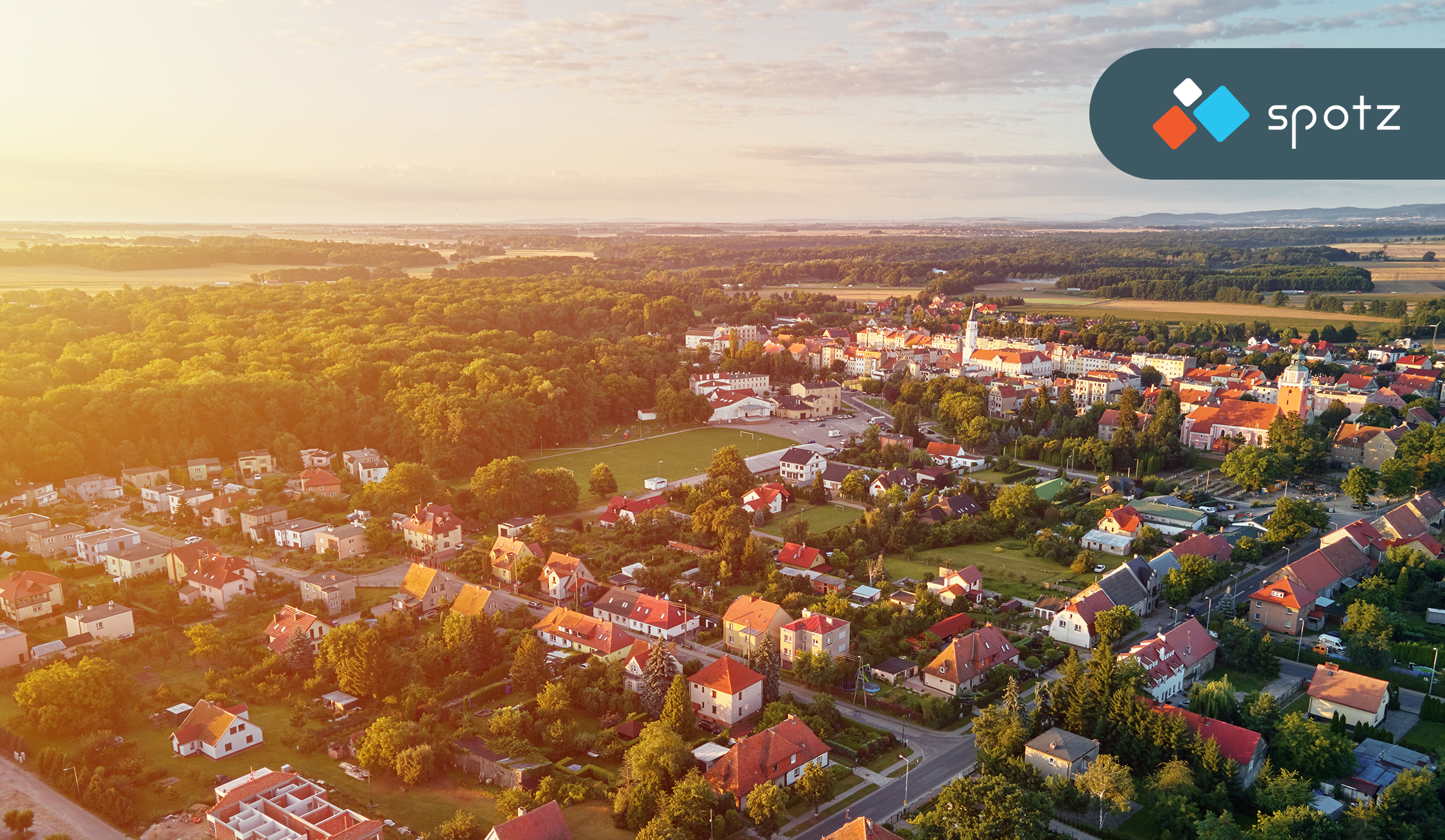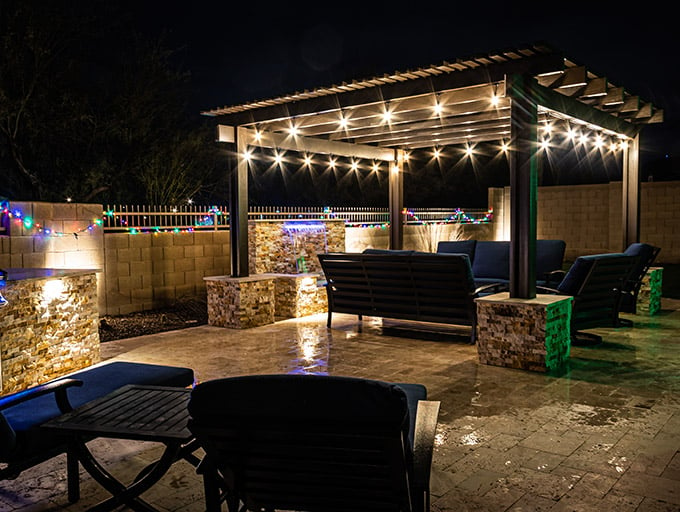Community Engagement Strategy 101: Everything a Mayor Needs to Know

Contents
As a mayor you - like everyone else - know that times are a bit unusual right now. We’re coming out of the disruptive pandemic years. And with that, tons of lessons on community wellbeing have emerged from the woodwork.
For instance, most of us now look at in-person gatherings and interactions in a new light. We see they're vital for the full health of individuals and the economy. And from that it’s clear that better access to public spaces plays an essential role in improving communities.
Therefore, as the head of your city, you’ll want to develop a community engagement strategy. To support you in this important task, we've compiled some helpful resources for you below. Here’s what you need to know to get your citizens more engaged.
What Do We Mean by “Public Spaces”?
Definitions of the term public space can vary, especially from country to country. But in general, a “public space is an area that is open and accessible to people. Common examples include roads, paths, sidewalks, parks, public squares, natural areas, beaches and public buildings such as libraries.”
A public space can be privately or publicly owned.
A Call to Reimagine Public Space
At Spotz, we like to think in terms of “shared space.” A shared space is any physical space that can be used on-demand, by anyone. Basically, we expand the concept of public space to include any space that can be reserved or rented for use.
Shared spaces include open public areas such as beaches, parks, squares, and closed public places such as libraries, museums, and heritage sites. But they also include previously hidden private spaces.
Think about an empty space in a local business or facility. It could be a conference room, empty office, church chamber, sports court, banquet hall, bowling alley, coffee shop table, or secluded area. Next, imagine how it could be rented out!
By embracing our concept of shared space, rental revenues could become a serious supplement to incomes in your municipality.
And with the right software supporting you, you can turn every nook and cranny of your city’s empty facilities into reservable spaces.
How to Capture Momentum for Your Spaces in 2022
During 2020-21 the pandemic affected businesses negatively. Now people are asking, what lessons can we apply as facilities and parks reopen? Here are some lessons learned for people who manage a community space, whether public or private:
- People want to gather - Connect with groups to see what they need, and make sure they know how easy it is to rent your city’s spaces.
- Make people comfortable - Keep up your sanitizing protocols, and clearly communicate your policies and actions. Check in with your customers regularly to make sure you’re meeting their current needs.
- Rethink the workspace - The remote work era kicked off like never before during the pandemic. And some people haven’t looked back. Take advantage of this and consider marketing yourself as remote-work, conference, and team-meeting friendly.
In the end, businesses and organizations can do so much to help rebuild their community. It’s as simple as opening up their available spaces for rentals. While they’re at it they help boost their revenues - for a double win!
Get Creative to Accommodate Increased Demand
With the excitement of gathering again comes new ideas and possibilities. Demand for getting together in person is exploding!
But are your local facility managers feeling limited by the inventory they have? If so, they shouldn’t be. It’s simply time for some classic thinking outside the box.
As an example of this, imagine a venue with only outdoor spaces. It can use those outside areas for:
-
Corporate Team Building
-
Meetup Groups
-
Celebrations
Not to mention, for anything else anyone can imagine!
But if people don’t know about your city’s outdoor spaces, you may be missing out on the uptick in demand.
That’s why you’ll want to get the word out there to the public, in every way you can. Go beyond your usual marketing channels and set up a listing on a cutting-edge facility booking platform. Use it to promote your spaces to local residents, businesses and organizations.
Star Roles in Your Community Engagement Strategy
You’ve started to get the vision for how easy and rewarding it can be to get people together again. Hoorah! Now, let’s drill down a bit further into exactly who is best positioned to promote more frequent gatherings in shared spaces.
Some of the main players in uniting communities include:
- Mayor or City Office
- Parks and Recreation
- Private Sports Facility
- Churches and Faith Centers
- Banquet Hall or Small Venue
- Community Centers
- Small Business Owners or Managers
Though their community roles are different, the core tactics are the same for each. Across the board they should:
Engage in ongoing communication with local residents and patrons. Get to know their needs, pain points, and dreams.
Make sure people know which spaces are available to them. Employ online marketing and great photos.
Use facilities and neighborhood spaces to their greatest potential.
Streamline and modernize the rental process. (A good facility scheduling software is essential for this!)
Put extra revenue streams back into the local economy. This prompts the cycle of locally flowing products, services, and interactions to continue.
Why Money Is Leaving Your Community & How to Stop It
“Buy local” has become a rallying cry for residents to support their local small businesses. It’s another way to invest in our communities. And it’s important for your community engagement strategy too.
After all, economic activity is one of the main forces that brings residents together on a regular basis. People often chat and interact during the course of buying, selling, and trading.
Here’s how to get more dollars - and community engagement - circulating in your city:
Help People Find the Right Thing at the Right Price
List local stores and businesses on a searchable website like Madison’s Dane Buy Local or Wisconsin Buys Local. Host events that celebrate locally-owned businesses, restaurants, and service providers. Offer incentives that encourage community members to get into the habit of “Thinking Local First.”
Help People Find the Right Venue for Large-Scale Events
Cities can work with a Destination Marketing Organization (DMO), such as a local visitor’s bureau. You'll want to help your DMO create and maintain a database of rental facilities and an accessible booking system.
A convenient way to do this is by using an online scheduling software that lets you create and manage a database of facilities and spaces within the community. This makes it easy for a wide network of event planners to learn about and recommend your city’s spaces.
Help People Find the Right Venue for Small-Scale Events
Promote Rent Local. A well-chosen online booking platform makes it easy for local businesses to market their venue availability. It’s simple - and fun - for residents and visitors to discover awesome local businesses with available spaces to rent!
Improve Public Space Use
There are so many benefits of public spaces.
First, there are social benefits to communities. As people gather in public places, they interact and build relationships. They develop a sense of safety, security, and being known by others, and they feel like they belong.
Then, there are the economic and civic benefits. Starting with higher property values, you also see increased improvements to surrounding infrastructure, and private sector growth. Increased ownership and involvement typically follow too.
Ways to draw more people into the public realm include:
- Involve more community members in the governance of public space - As people get more involved they become more invested and engaged.
- Invest in maintenance and upkeep - A well-maintained place is an inviting one.
- Market and rent your spaces - Boost bookings and engagement with a modern, easy to use booking solution.
A good facility rental platform lists all a city’s available rooms, courts, venues, and outdoor areas in one easy-to-search location. It increases engagement by making public spaces easier to find and rent.
It also reduces administrative tasks for facility managers, allowing them to focus on providing exceptional customer experiences. This means satisfied visitors returning again and again!
How to Create a Happy Community
A happy community is, at essence, people living well together. And of course, that’s what you want to see in your city!
To foster this kind of culture as part of your community engagement strategy, you’ll want to do the following:
Develop a Culture of Civic and Service-mindedness
This can include sponsoring fundraisers and donation drives, or time banks and volunteering. Encourage people to vote and attend town hall meetings. Let it be known you’re open to constructive criticism and suggestions for what the city could do better. And listen to a wide variety of voices in your area.
Support your Local Economy
Support and promote small, local businesses whenever possible. Look for more ways to keep money in your community, such as by purchasing from regional vendors. Thank area businesses for what they do and let them know they matter! Come out in support of them at fairs and other events.
Help Maintain a Clean Environment
There are so many possibilities here! Pitching in to beautify a neighborhood can really bring people together.
So, sponsor trash collecting field trips or a city clean-up campaign. Promote recycling, composting, riding bicycles, and saving energy. Or plant flowers, trees, and community gardens.
Promote Social Gatherings, Participation, and Collaboration
Encouraging social events together is a great place to start. There are dance nights and conversation cafes - and also sports tournaments, walking clubs, or church cookouts.
The sky’s the limit. Really anything that gets people to be social and gather helps create a happier community! And solutions abound for helping people find great places to meet in your area.
In general, happy communities happen when people come together - with each other and their surroundings. So support this in all possible ways!
Support Local Small Businesses
The recent pandemic has taught us all the same lesson – not to take our economy for granted. As a mayor, supporting your local economy should be a core part of your community engagement strategy.
How can you as a city official help support small businesses?
The first step is to get “on the ground” and interact with your citizens. Really listen to them. As you go, be a voice for your area's products, services, and spaces!
- Look at how you can provide education, training, and development in a variety of ways
- Advocate for zoning that supports small business
- Collaborate with the state government to offer tax breaks and incentives to small businesses whenever possible
- Help business owners avoid municipal fines by clearly publishing guidelines, fees, and schedules for things like trash removal and hygiene standards
- Help small businesses cope with staffing shortages by encouraging automation
Expand access to capital and new revenue streams
Provide help for business owners as they apply for SBA loans. Also consider using available ARPA funds for a facility rental software like Spotz.
After that, encourage revenue diversification through multiple income streams. Businesses can consider reshaping their products or services. They can get creative with merchandise options — in person and online. And they can explore the potential in delivering products and services in new ways.
Promote the shared space concept to businesses. Show them that any available space can be rented for gatherings - for extra income! Combine that willingness to open up with a modern facility booking and management platform like Spotz and - you’re golden.
Improve the Quality of Life in Your City
A precise index for quality of life doesn’t exist - but there are some common denominators among cities on the Best Places lists. They include a strong economy, engaged citizens, health-promoting amenities, and a clean environment.
All these factors work together to make it easy for residents to choose a varied and healthy lifestyle. That means there’s lots of work to be done across many areas to take your city higher in the rankings!
But since you’re developing your community engagement strategy today, cultivating engagement networks of citizens is a great place to start. So do the following to ensure your city’s headed toward a higher quality of life:
- Get city residents together to talk and discuss local challenges.
- Organize areas of your city into domains. Assess area strengths and weaknesses. Then, brainstorm initiatives you could launch and amenities that are needed.
- Promote shared spaces. Suggest that more public and private locations open up for bookable community use. This goes for faith centers, parks and rec centers, gyms, nonprofits, as well as business locations large and small.
Pay special attention to community equity
Community equity means giving people in your area what they need to take part and thrive. In the context of public space, you want to make sure that people of all backgrounds have equal access to your city’s places.
Here are equitable best practices for facility managers:
- Reach out to a diverse population - A wide reach within your area and beyond is easy with the right facility booking software.
- Clarify all rental details upfront - Thoroughly include and all information your renters might want to know - including pictures! Anticipate questions they’ll need answered. And be sure to convey a personalized version of the message “All are welcome.”
- Welcome your guests with careful attention - When you work with modern rental software your venue staff - quite frankly - has more time. Use this to give the best customer experience possible to each guest!
Spotz Can Boost your Community Engagement Strategy
Spotz lets municipalities, businesses, and organizations list and manage their available rental spaces with ease.
Because it’s searchable online, it ensures community members can quickly access and reserve those spaces. Adding more area locations on Spotz means the public will know where to go to find the rental they need.
It’s seriously one of the best things you can do for your city! And Spotz works best when it’s promoted by city government.
To learn more about how Spotz can take your community engagement to new heights, contact us today!



